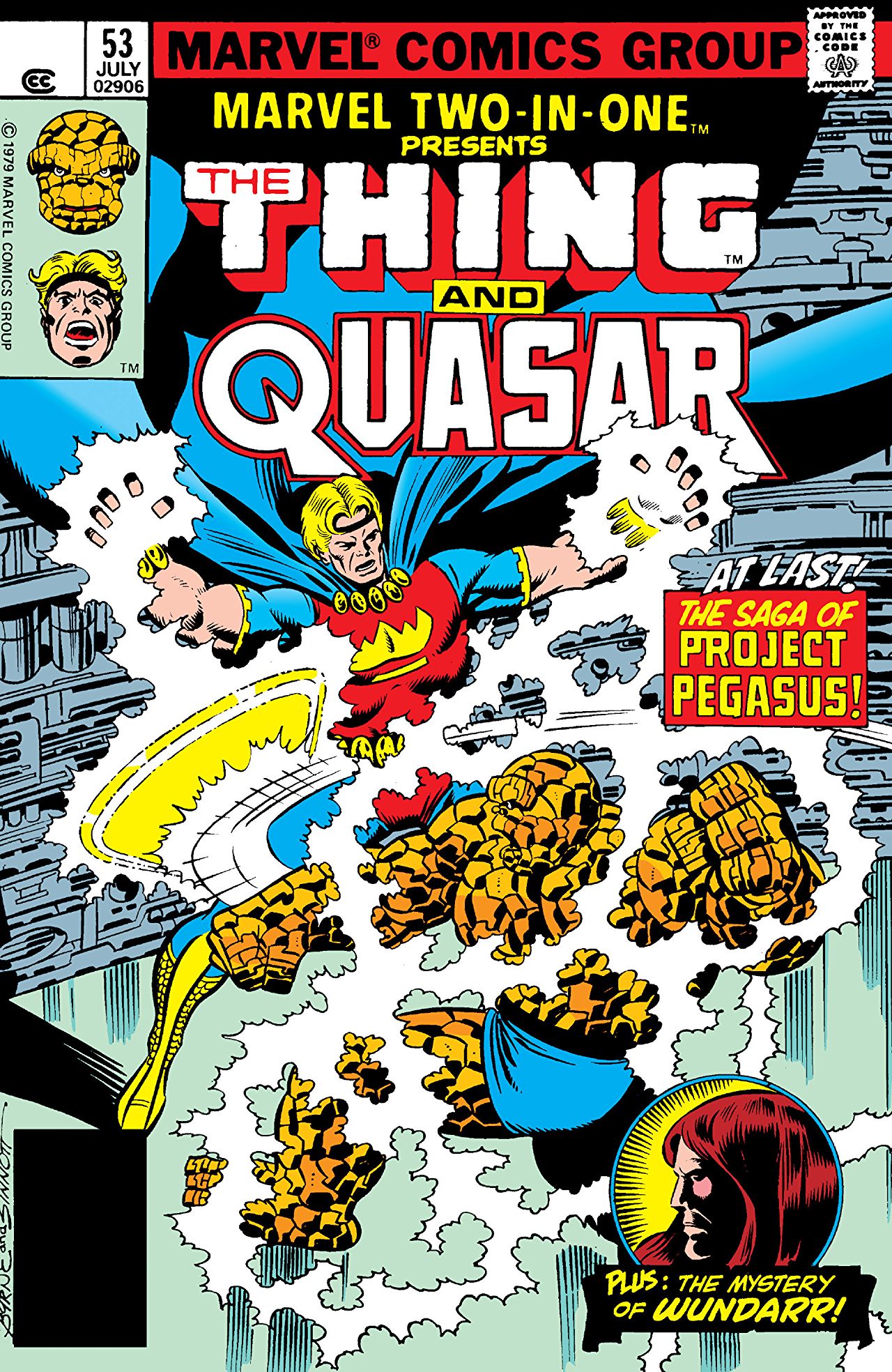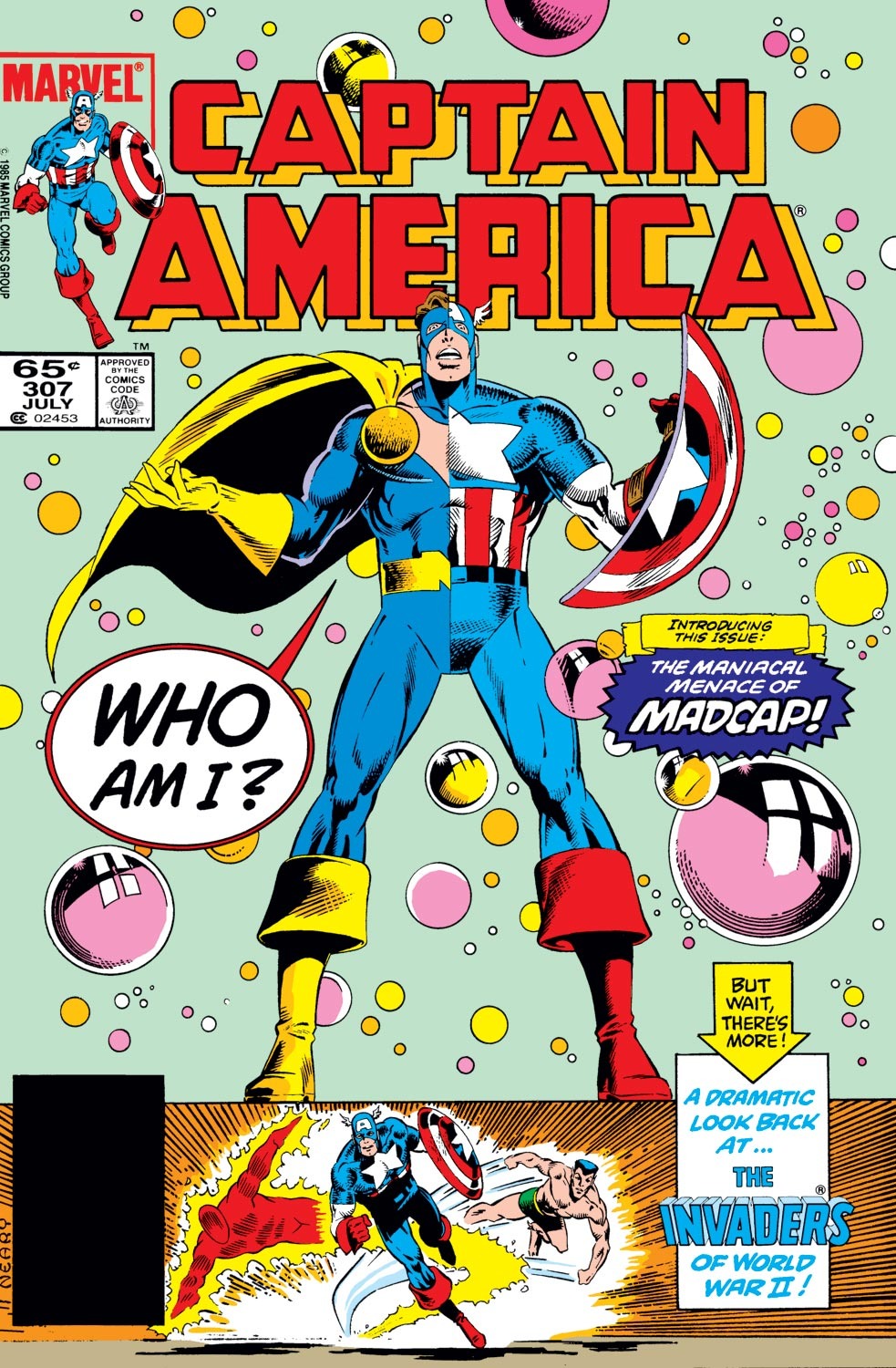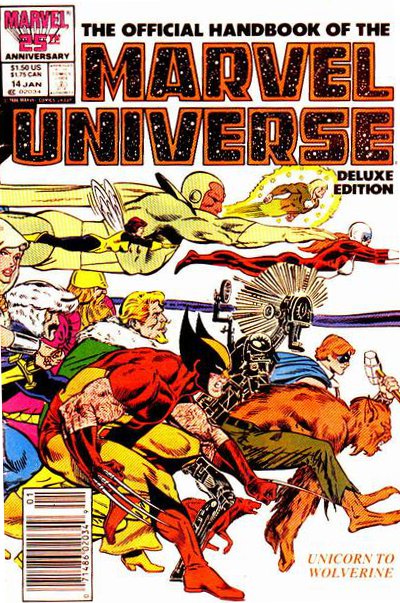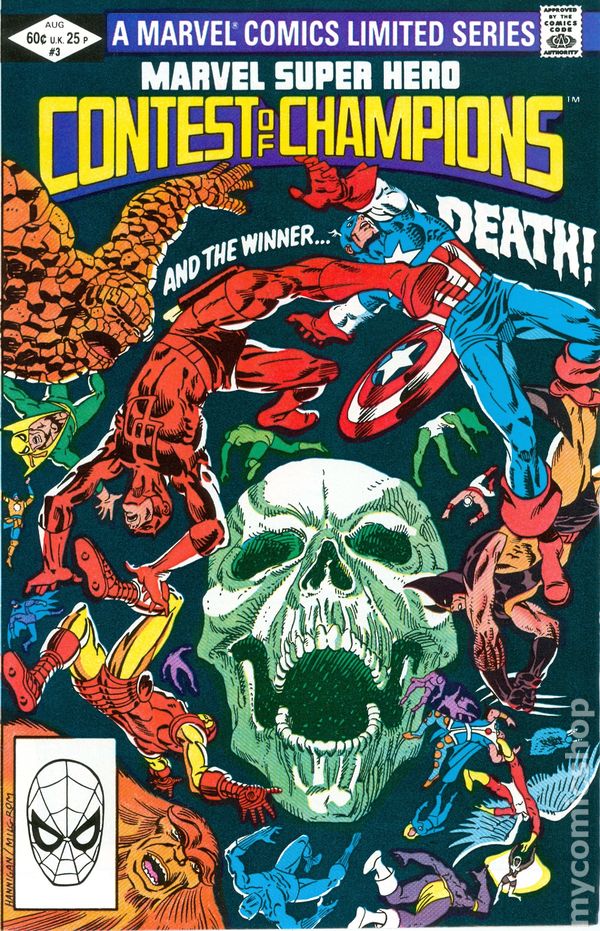
This article is reprinted from a 2013 feature on my old web site.
The late Mark Gruenwald, who died on this day in 1996, was a workhorse for Marvel in the 1980s and 90s. While he probably had his biggest influence as an editor, he was also known for stepping in and doing great fill-in issues as well as extended runs on some of Marvel’s best known characters, and was famous for having an encyclopedic knowledge of continuity. Kind of like DC’s Geoff Johns or the current Brian Michael Bendis.
He also created the updated Serpent Society—including new members Anaconda and Diamondback among others, Flag-Smasher, Jack O’ Lantern, the villain Crossbones, and many other cool characters, before dying way too young of a heart attack.
Nobody talks about him anymore, but if you’re looking for some fun books that typify the late ‘80s/early ‘90s—widely considered a peak in the quality of Marvel comics—check out this top 10 after the break.

10. The Project P.E.G.A.S.U.S. Saga (Marvel Two-In-One #53-58)
Project Pegasus (Potential Energy Group/Alternate Sources/United States) was the superprison in Marvel land before The Raft. In this storyline, which took place over the course of five issues of Marvel-Two-In-One, The Thing is hired to be chief of security. My favorite issue was the Deathlok one, but there was so much fun in these issues.
And fun is really what characterizes Gruenwald’s work overall. It’s light, but it’s designed for fans of superheroes, by a huge superhero fan.
9. Captain America #327-350 (1987)
A long run of issues where Cap is replaced by USAgent and a black Bucky appears. Yes, Gruenwald did it long before Ed Brubaker.
8. What If? #32 (1982)

What if The Avengers had become the pawns of Korvac. A sentimental favorite of mine, as I read this issue before I read the actual Korvac saga. In fact, it was because of this issue that I began obsessively snatching up old issues of The Avengers.
7. Squadron Supreme #1-12 (1985)
A “maxi series” about the team introduced in the pages of The Avengers as a spoof of the Justice League, Mark Gruenwald elevated them so
that they became even more interesting than the JLA. Without this book, JMS could never have done his brilliant Marvel MAX Supreme Power series.
This series is also cited as a major influence on more famous books like Watchmen and Kingdom Come, as it was an attempt to deconstruct the superhero genre (albeit with more reverence and respect than Alan Moore used in his book).
6. Captain America #307-320 (1985)

No, these thirteen issues aren’t one long storyline, but they are great. In fact, they’re some of the best Captain America comics of the prior Century. We get to see weirdoes like Flag Smasher, Armadillo and Madcap, and established threats like Awesome Android, MODOK, and the Serpent Society. And the Marvel Bullpen become regular characters as Cap gets a job in comic books.
Yeah, it’s all a little cornball, but it’s that kind of innocence that made Gruenwald’s material so wonderfully accessible. Popcorn comics, that’s what they were.
Others will cite the USAgent storyline, or Bloodstone Hunt, or other longer arcs as the best Gruenwald Cap stuff—and that stuff is cool—but this is really where it’s at for me.
Of course, when you write over 150 issues about a character, you’d better have more than a few successful issues.
5. Marvel Two-In-One #60 (1982)

Thing and The Impossible Man. One of the funniest comics of the 1980s.
4. Official Handbook of the Marvel Universe Volumes 1 and 2 (1983-1985)

Gruenwald was one of the major writers and responsible parties for Marvel’s first attempt to catalog all of its characters and establish a comprehensive continuity bible, in monthly issue form. I collected this series obsessively, hanging each issue on my wall (they all ran together to form a long poster). Gruenwald had the same role in Volume 2, which had two great issues that focused on weapons and tools of the Marvel Universe and all the dead characters.
When I sold most of my collection, I kept these. Can’t bear to part with them.
3. The Avengers #185-187 (1979)

“The Yesterday Quest.” A storyline that brought together many elements of Scarlet Witch and Quicksilver’s past—and, as I’ve said above, continuity was Gruenwald’s strong suit.
Illustrated by the great George Perez.
2. Marvel Super-Hero Contest of Champions #1–3 (1982)

Before the first “event book” in comic book history was this event book: Marvel Super Hero Contest of Champions. Drawn by two of the biggest powerhouses of the era, John Romita, Jr., and Bob Layton, it was a “kidnap the heroes and make them play a game” story reminiscent of the old Avengers-Defenders War. It represented a clear attempt for Marvel to be more “international” in scope, introducing characters like the Australian aborigine Talisman, Argentina’s Defensor, Le Peregrine from France, and Ireland’s Shamrock, and making use of little known heroes like Sabra (from Israel) and Arabian Knight. Most of these heroes never really went anywhere, and the story was a little clunky, but it was a gas seeing all the great (and not so great) Marvel heroes together. It was clearly the predecessor for the industry-changing Secret Wars event that followed it.
By the way: There was a sequel contest, which sucked.
1. Hawkeye #1-4 (1983)

Sure, he’s real popular now. But in the late 1970s, Hawkeye wasn’t nearly as well-known. In fact, he’d tried (several times) changing his identity to Goliath. Mark Gruenwald’s miniseries (he wrote and drew it all himself) was Clint Barton’s first foray into solo action—other than in isolated issues of The Avengers. It made good use of existing Hawkeye mythology, while creating a new one that would allow the character to stand alone. Foremost, it introduced him to Mockingbird, and their relationship is still going on—in one form or another—to this day.

I remember that Hawkeye miniseries (and Mockingbird, didn’t she later become Black Cat or something)? The Hawkeye miniseries was one of the casualties when my Mom threw out my comic book collection when I was away at college (why does everyone’s parents DO that)!
Great Zeus, Ekko! Why in the name of Irving Forbush did you SELL your COMICS COLLECTION-?????????? What dark madness didst descendeth upon thee????